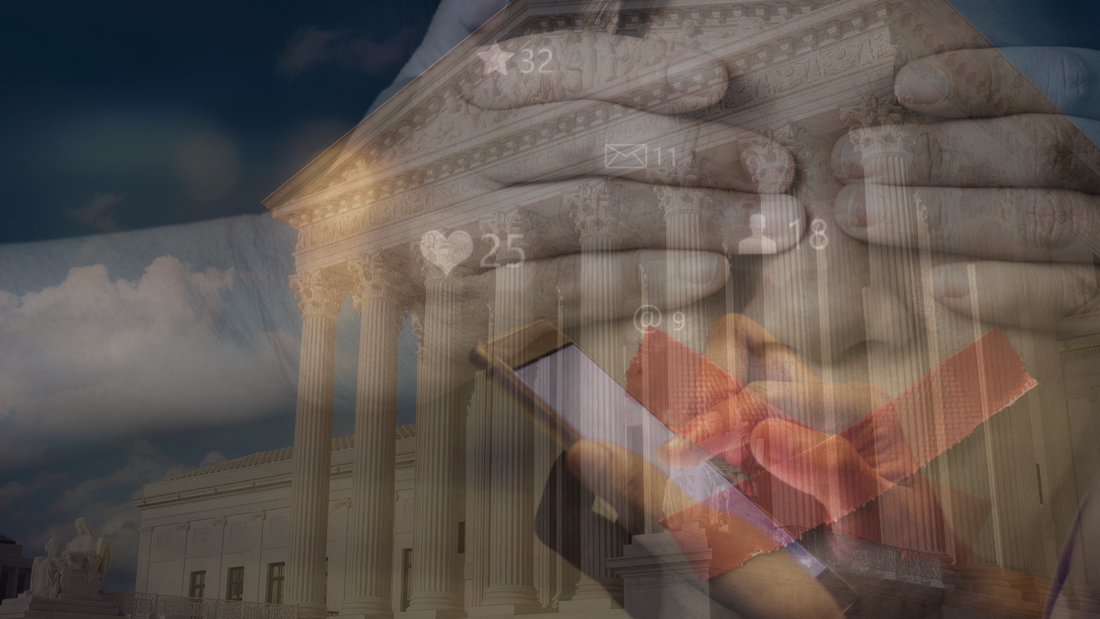|
Earlier this summer, we wrote about an opinion and order issued by Judge Terry Doughty of the U.S. District Court for the Western District of Louisiana in the case of Missouri v. Biden. The controversy stemmed from accusations of government censorship and viewpoint discrimination against speech – under both the Biden and the Trump administrations – most notably social media posts related to COVID-19.
The plaintiffs argued that the government pressured social media platforms to such a degree that it interfered with the First Amendment right of the platforms to make their own content moderation decisions. Judge Doughty agreed. The district judge’s controversial order enjoined the White House and a broad range of government agencies from engaging in a wide array of communications with social media platforms, with 10 separate provisions laying out the parameters. The administration appealed to the Fifth Circuit, which stayed the injunction. Now, a three-judge panel from the Fifth Circuit has weighed in. Broadly, they side with Judge Doughty’s finding that the White House, the Surgeon General’s office, the FBI, and the CDC either coerced or significantly encouraged social media platforms to moderate protected speech. At the same time, the court significantly reduced the scope of the injunction order, striking nine out of the 10 prohibitions for vagueness, overbreadth, or redundancy. Further, the court found that a range of enjoined parties – including former NIH Infectious Disease Director Anthony Fauci and the State Department – did not engage in impermissible conduct. What we are now left with is a much narrower new injunction with a single prohibition reading as follows: “Defendants, and their employees and agents, shall take no actions, formal or informal, directly, or indirectly, to coerce or significantly encourage social-media companies to remove, delete, suppress, or reduce, including through altering their algorithms, posted social-media content containing protected free speech. That includes, but is not limited to, compelling the platforms to act, such as by intimating that some form of punishment will follow a failure to comply with any request, or supervising, directing, or otherwise meaningfully controlling the social-media companies’ decision-making processes.” Unsurprisingly, the Biden administration is appealing the ruling – this time to the highest court in the land. The U.S. Supreme Court granted the administration’s request for an administrative stay of the Fifth Circuit injunction as the administration prepares to file a petition for certiorari by Oct. 13 (which would allow the Supreme Court to hear the controversy this term). While it is at least reasonably likely that the Court will agree to hear this case, we stand by our prior position on the issue – that questions surrounding the limits of government interaction with social media companies merit a vigorous, informed public debate. We again urge Congress to hold bipartisan hearings to examine among other questions whether social media platforms find the communications with government to be unwelcome pressure or whether they find the information provided to be helpful. In order to combat a tide of Covid misinformation, in 2021 the White House began closely monitoring social media companies’ health related postings. The sense of urgency felt by federal officials was soon reflected in sometimes hyperbolic communications to the public that reflected the deep concern with a flood of harmful misinformation that they believed was getting in the way of the provision of accurate Covid related information to the public. In July 2021, at a White House presser, the Surgeon General accused social media companies of “enabl[ing] misinformation to poison” the public. Soon after, President Biden responded with his own comment about social media “killing people” and the White House publicly discussed legal options. Social media companies apparently understood the message, changing internal policies and making new efforts to deplatform users like the “disinfo dozen,” a list of influencers deemed problematic by the White House. Still, the administration continued its public messaging, with the White House Press Secretary at one point expressing explicit support for Section 230 reforms so the companies can be held accountable for “the harms they cause.” Of course, the government must be able to communicate freely to the public and with private companies, especially on matters of public health and safety. The parties released from the District Court’s injunction likely exercised that right appropriately. There is danger, however, when the government works with social media silently to remove content, with no public transparency, especially if there is a hint (or more than a hint) of coercion. What is that danger, exactly? Reasonable people agree there are public health messages that are irresponsible and harmful. But secret censorship, no matter the justification, is the royal road to a censored society. Protect The 1st hopes that congressional hearings and a high Court review will bring clarity on the question of government communications with social media, now America’s main public square. Comments are closed.
|
Archives
June 2024
Categories
All
|
ABOUT |
ISSUES |
TAKE ACTION |



 RSS Feed
RSS Feed